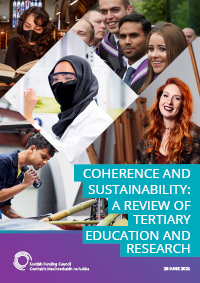
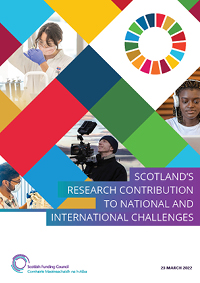
University of Edinburgh researchers have played a pivotal role in informing global climate change mitigation policy for nearly two decades. Among the first to demonstrate the link between human-caused greenhouse gas emissions and climate change, their research formed the scientific foundation of the 2015 Paris Agreement.
The Edinburgh team uses a technique which involves analysing temperature data before and after the industrial revolution against emissions and natural climatic events, such as solar warming and volcanic eruptions. This allows researchers to isolate climate changes only humans could cause. Using these results, Edinburgh researchers can predict how much warming different future scenarios will cause.
Six years after the Paris Agreement, the latest IPCC report did not offer much cause for celebration. Described by its authors as a “code red for humanity”, the report said a 1.5°C rise in temperatures and, along with it, more flooding, droughts and wildfires, is now inevitable by 2040.
Edinburgh research contributed to the most recent report as well as the IPCC’s 2018 landmark special report that showed humanity’s wriggle room was being squeezed. It said that the level of carbon emissions the world could withstand during the next century without temperatures rising beyond 1.5°C threshold was 40 per cent less than originally estimated. This work also showed that this temperature rise started earlier than often recognised.
The impact of the research has been a galvanising effect on policymakers, leading countries such as the UK to accelerate their commitments to achieving net-zero CO2 emissions by transitioning to a post-carbon economy.

The latest Times Higher Education Impact Rankings include seven Scottish universities, the highest showing yet in the four years since the Impact Rankings were established. Their success comes amidst a 25 percent rise in participating universities.
The universities of Glasgow and Edinburgh appeared in the top 100 as did Glasgow Caledonian University. The Scottish contingent also included Aberdeen, Strathclyde, Dundee and University of the West of Scotland.
The Times Higher Education Impact Rankings assess universities against the United Nations’ Sustainable Development Goals and provide comparison across four broad areas: research, stewardship, outreach and teaching. The latest tables include 1,406 universities from 106 countries/regions.
UN member states adopted the 17 goals for sustainable development in 2015, and they are described as “an urgent call for action by all countries – developed and developing – in a global partnership”. The goals recognise that the ending of poverty and other types of deprivation must go hand-in-hand with strategies to improve education and health, reduce inequality, and spur economic growth.
Each of the seven Scottish universities in the 2022 rankings scored highly under the UN’s goal for strengthening global partnerships.
Mike Cantlay, Chair of the Scottish Funding Council, said:
“By contributing so strongly to the UN’s Agenda for Sustainable Development, our universities are helping to enhance Scotland’s international reputation and strengthen our relationship with other countries.”
A recent Scottish Funding Council report looked in detail at the effect Scottish university research has on both the UN goals and Scotland’s National Performance Framework.

Greenhouse gases, including those from agricultural systems, lead to global warming which contributes to rising sea levels and climate problems. The ability to monitor greenhouse gas emissions is critical to understanding the sources of emission and how to better control them.
Scotland’s Rural College (SRUC) has a strong record of engagement with the farming industry, the agricultural supply chain and associated regulatory bodies. It has built on this to develop a programme of research that addresses national and international policy priorities and supports the move to a low carbon economy.
SRUC’s contributions include playing a leading role in the Greenhouse Gas Platform Programme. The programme sought to improve the accuracy and resolution of the UK’s reporting system by providing new evidence on the factors affecting emissions, and statistics relevant to the country’s changing farming practices. It led to a UK specific method of calculating methane and nitrous oxide emissions, enabling the accurate forecasting and monitoring of performance against target emissions reductions set by the UK and Scottish Governments’ Climate Change Acts.
Research undertaken at SRUC has also contributed to the development of a tool for presenting carbon emissions abatement options in agricultural settings. SRUC’s most recent work has provided new evidence on the abatement potential of precision farming, the increased use of legumes in farming systems, and the more widespread uptake of nitrification and urease (enzyme) inhibitors.
SRUC has been involved in major international research collaborations in China, India, South East Asia and Sub- Saharan Africa. The impacts of its research have reached beyond the UK and Europe and into developing countries.
Statistical publication schedule
College Performance Indicators
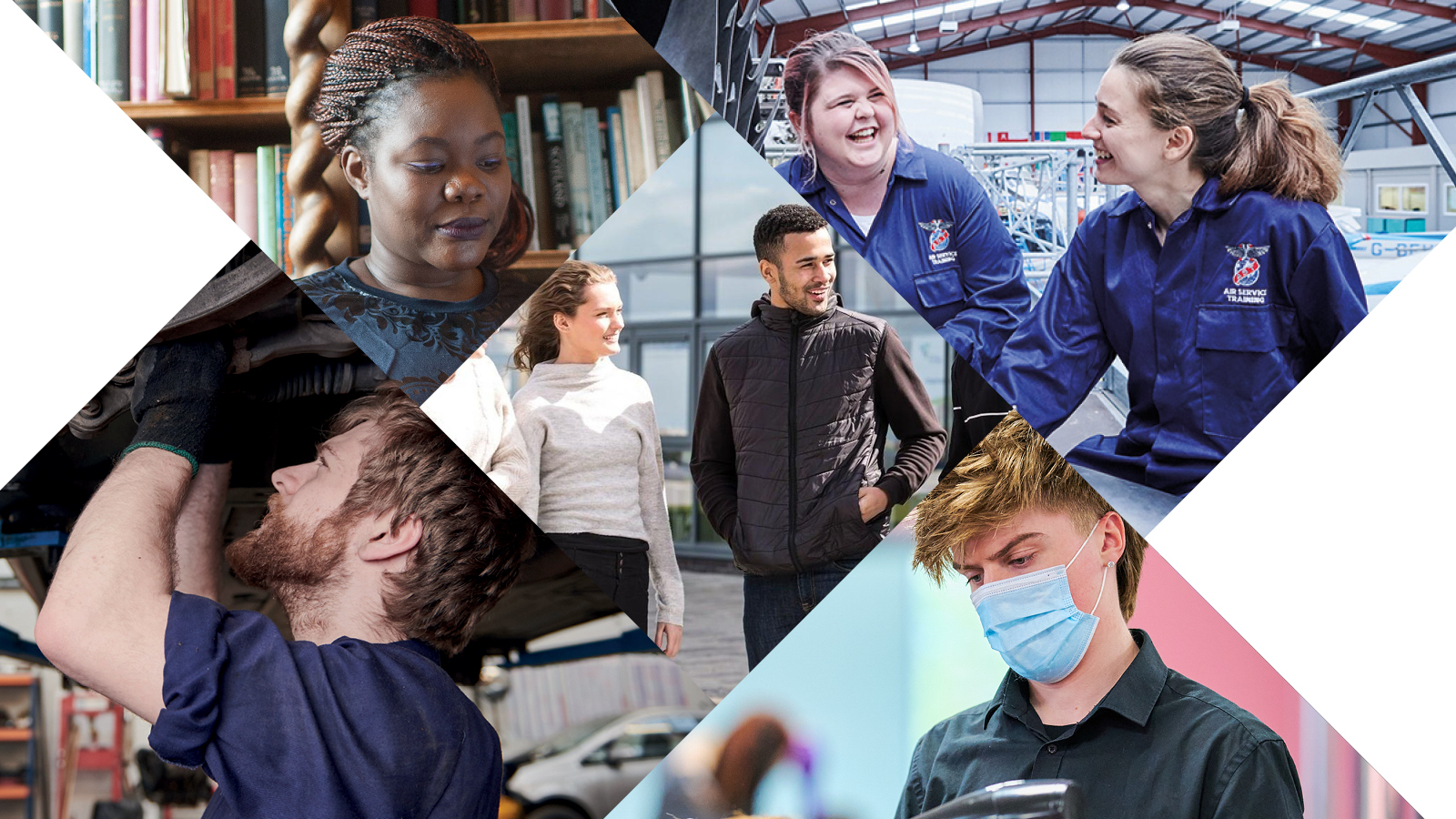
A new report from the Scottish Funding Council (SFC) has confirmed colleges in Scotland provided almost 118,000 full-time equivalent (FTE) places in 2020-21. According to the latest figures, colleges delivered 117,914 SFC-funded FTE places against a target of 116,269.
The report provides the most up to date picture so far for students who were unable to complete their studies because of the pandemic. This was often due to measures to protect students and staff which restricted access to on-campus learning at college facilities.
The situation had a disproportionate effect on students studying practical subjects such as hair and beauty, technology and construction. Colleges have been making special efforts to reconnect with these students, and over 90 per cent of those unable to complete their studies in 2019-20 had returned to college by 2021-22.
Students deferring their studies in 2020-21 did so within a more buoyant labour market, which may account for fewer of them (around six in ten) having returned to their studies by January 2022. However, work is continuing to ensure anyone wishing to return to college knows they have the opportunity to do so.
More employment opportunities may also have contributed to the small increase in full-time further education students withdrawing from their courses in 2020-21 (3 per cent) and the subsequent reduction (four percentage points) in the number successfully completing their course.
However, for full-time college students on HE courses, success rates increased by 2.3 percentage points and were slightly higher than previous years. Withdrawal rates for full-time HE students have returned to pre-pandemic levels. According to the report, this may be due to more resilience in coping with digital and self-directed learning during the pandemic.
Commenting on the report, James Dunphy, Director of Access, Learning and Outcomes at the Scottish Funding Council, said:
“The impact of the pandemic continues to be felt in our latest report on college performance. Colleges have been operating in the most challenging of circumstances and have gone to extraordinary lengths to make sure all students have had the best possible opportunity to reach their potential.
“During national lockdowns college staff and leadership teams showed an incredible amount of determination and creativity to keep students learning, and they continue to make huge efforts to re-engage students who deferred their studies – including providing support to alleviate the effects of the pandemic on mental health and poverty.
“SFC has been engaged throughout and I’m pleased that, with additional funding from the Scottish Government, we have been able to support colleges to deliver for learners over this period.
“This report shows the extent of what has been achieved in unprecedented circumstances and underlines the partnership which has existed across colleges, the Scottish Funding Council and government to support learners and learning at this most important time.”

Across the world, rapid urbanisation is resulting in more slum dwellers; inadequate and overburdened infrastructure and services; worsening air pollution; and unplanned urban sprawl.
And growing cities now have to react to the urban humanitarian crisis caused by the global pandemic. How they respond is critical in protecting their population, halting the pandemic and setting the scene for resilience and recovery.
Professor Brian M Evans is Professor of Urbanism and Landscape at The Glasgow School of Art. He was commissioned by the Committee Bureau on Urban Development, Housing & Land Management – a part of the United Nations Economic Commission for Europe (UNECE) – to coordinate and author its Regional Action Plan 2030. The Plan was presented to the COP26 conference as a cornerstone of UNECE’s climate action.
The Plan is intended to be a manifesto for action across UNECE’s 56 member states to address the effects of COVID-19 pandemic. It also seeks to tackle the climate and housing emergencies, and to provide the basis for plans and activities around the contribution of affordable housing to sustainable urban development. RAP 2030 develops a series of principles, objectives, policies, goals, targets and actions to underpin delivery across the region and will be implemented, on a voluntary basis, by international organisations, the governments of member States and cities, the private sector, civil society and other stakeholders.
The Action Plan is also intended as a tool for communication with other sectors and for awareness raising. The Committee will monitor progress in sustainable urban development and affordable housing as a part of its continuing work programme.
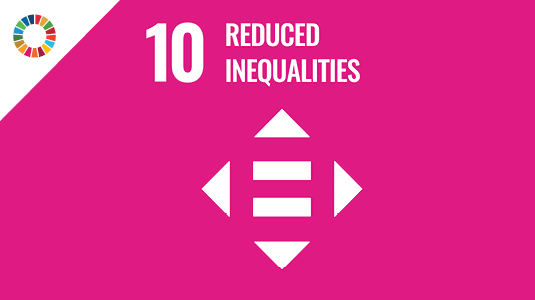
The Institute for Global Health and Development at Queen Margaret University (QMU) has a long history of research on vulnerable populations both overseas and in Scotland.
Early in the COVID-19 pandemic, the Institute produced a briefing paper commissioned by the Department for International Development and the National Institute of Health Research which provided guidance to health planners, managers and professionals in planning COVID-19 response globally.
Subsequently, its researchers were invited to advise on identifying and addressing social isolation in refugees in the UK during lockdown. They received requests from the Foreign Commonwealth and Development Office for studies to inform the UK’s aid strategy in Lebanon; Sierra Leone; the Democratic Republic of Congo, Myanmar; and Nepal.
The Institute was also commissioned to advise the United Nations Relief and Works Agency regarding COVID-19 prevention and treatment in Gaza and Lebanon. Additionally, it was invited to support the World Health Organisation in Gaziantep (Turkey) in planning a strategy for north-west Syria through a virtual implementation of the Institute’s group modelling methodology. In Azerbaijan its researchers supported the Government’s response to the mental health burden of COVID-19.
In Scotland, with funding from Scottish Government, the Institute worked with QMU’s Psychology Department to research the impacts of COVID-19 restrictions on loneliness on Scotland’s refugees and asylum seekers. The research demonstrated the effects of sudden-onset isolation, whilst challenging assumptions that isolation inevitably results in loneliness and poor mental health.
Through action-research in collaboration with refugee support organisations, the Institute also documented the experiences of these marginalised groups and identified coping, resilience and effective support mechanisms.

InGAME, led by Abertay University is one of the nine initiatives that form the Creative Industries Cluster Programme launched in 2018.
With a growing number of digital agencies and over 3,500 jobs in digital technology, the creative industries sector in Dundee forms a larger part of the local economy than for any other city in the UK of a similar size.
According to Director, Sean Taylor, the Cluster for Computer Games formalises a relationship that has existed between industry and academia in Dundee for many years. Abertay University established the world’s first computer games course in 1997, and became the UK Centre for Excellence in Computer Games Education in 2009.
The Cluster has actively managed its funds to grow new companies and support existing ones with the constant objective of developing new products and services to create new jobs. To develop the creative community in Dundee, the Cluster has provided a range of activities including the co-creation of working prototypes; forming a virtual community of engagement; offering business vouchers, secondments and workshops; and designing frameworks for evaluation and reporting.
Its research has had a substantial impact on the creative industries sector regionally and across Scotland, and its successes include fostering a globally competitive, entrepreneurial, inclusive and sustainable economy. Amongst its outputs are 633 SMEs participating in engagement events, the creation or safeguarding of almost 600 jobs, the attraction of over £670,000 of funding and three quarters of supported companies releasing new IP material.
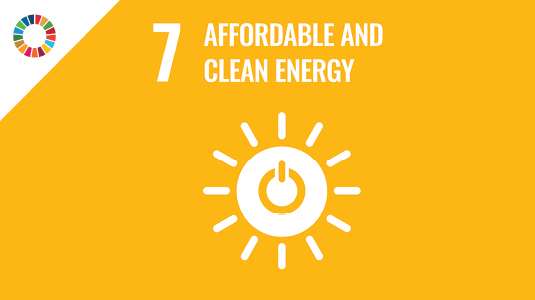
ReFLEX will deliver an extensive new pool of flexible demand technologies at regional scale, with the potential to deliver a global impact for our low carbon objectives.

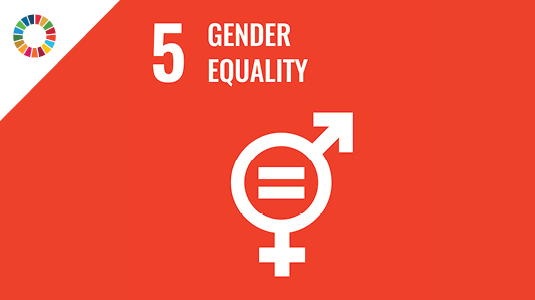
In Scotland, women-owned business accounts for 13% of private sector employment, and around 21% of Scotland’s 339,000 small to medium sized enterprises are majority-led by women. Despite policy interventions, men are still almost twice as likely to start a business as women.
Research conducted by Prof. Norin Arshed at the University of Dundee School of Business has investigated women’s enterprise policy, looking specifically at the enterprise policy process and landscape for women entrepreneurs.
Findings from Prof. Arshed’s research highlighted how top-down gender stereotyping of women entrepreneurs triggered specific responses both in women entrepreneurs and in other stakeholders, undermining policy objectives and destabilising women’s enterprise policy. The findings also exposed how shifting strategic agendas and a lack of resources had a negative effect on policy outcomes.
Arshed’s latest report to the Scottish Parliament gives an in-depth understanding of the effects of COVID-19 on women entrepreneurs in Scotland, highlighting how historical barriers have been amplified by the pandemic. Access to finance in sectors dominated by women was disproportionately affected; barriers to networking were exacerbated; and social and cultural barriers were prevalent. Despite a willingness of enterprise agencies to support women entrepreneurs, much of the support was confusing and generic.
The research findings give voice to women entrepreneurs’ analysis of their own situation, along with views from both public and private organisations associated with enterprise support. Collectively, these findings served to inform the establishment of the £50 million government-backed Women’s Business Centre announced by Scotland’s First Minister in 2021.
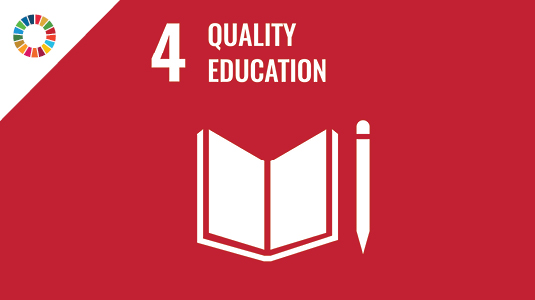
Today’s research impact focus is on how the University of the West of Scotland is changing lives in India
The Lab has been cited as an example of ‘best practice’ at GCRF summits in New Delhi and London.

By providing COVID analysis and helping to ensure everyone who needs a test can get one the Glasgow Lighthouse Lab has been a light in dark times. Testing remains a vital part of the UK’s response to COVID-19 as the country cautiously eases out of strict restrictions.

Review of Coherent Provision
and Sustainability
‘We know that the critical opportunities and challenges facing us as a society demand focus from the research community. SFC Alliances for Research Challenges will catalyse Scottish research sector coordination and collaboration to boost research funding and drive research that will benefit us all.’
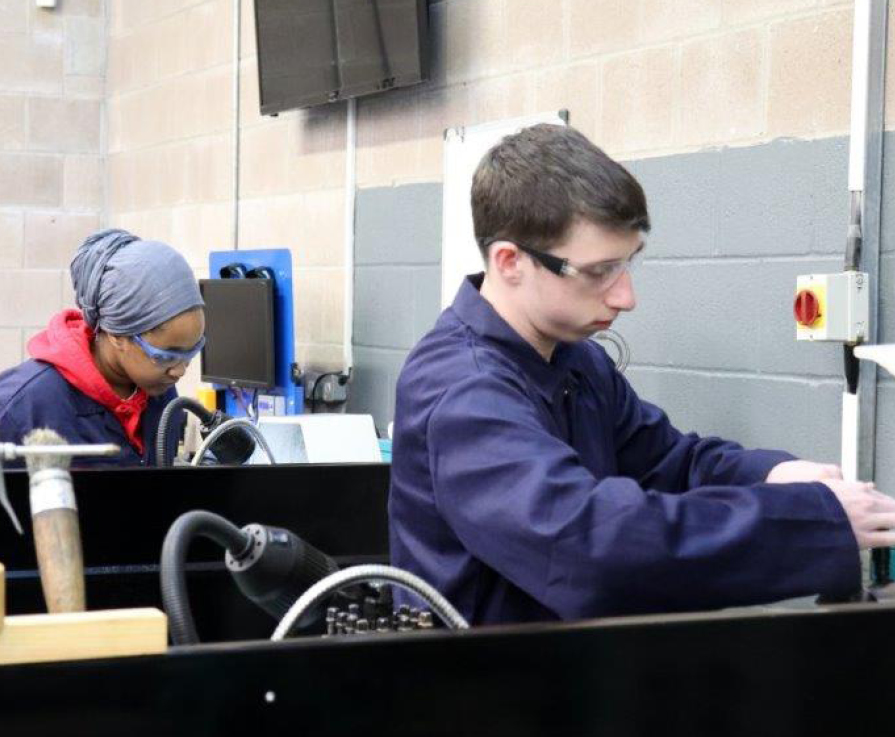

Through the CommonHealth project at the Yunus Centre for Social Business and Health, GCU research has directly influenced shifts in thinking about how the impact of community-led ‘social enterprises’ generates health and well-being impacts. Furthermore, the Centre’s research into ecosystems and environments that support social innovation has led directly to the establishment of 21 Social Innovation Support Units in Latin America, Southeast Asia and five European regions.
“Our new Gaelic Language Plan recognises the value of Scotland’s linguistic diversity in building connections and enhancing our quality of life. In implementing the plan we will be playing an important role in in supporting Gaelic to thrive in all its communities.”
Tha Comhairle Maoineachaidh na h-Alba (SFC) air a rùn airson taic a chumail ri cànan is cultar soirbheachail na Gàidhlig ath-ùrachadh.
Chaidh an treas eagran de Phlana Gàidhlig SFC fhoillseachadh an-diugh le cuideam air cothroman gus Gàidhlig ionnsachadh ’s a chleachdadh taobh a-staigh colaistean is oilthighean na h-Alba. Le conaltradh coimhearsnachdail, sgaoilidh a’ bhuaidh bhon obair seo thar roinn foghlam nan oilthighean agus bheir i buannachd leis do choimhearsnachdan, àitean-obrach is àrainneachdan ionnsachaidh eile.
Ann an co-bhann ri Sgilean Leasachaidh Alba, rannsaichidh SFC an t-iarrtas airson sgilean Gàidhlig, mar eisimpleir ann an raon nan seirbheisean sòisealta is cùram slàinte, gus freagairtean a dheasachadh dha seo.
Mar thoradh air planaichean roimhe, tha SFC a’ cur a taic ri clàradh sgrìobhte de dh’eachdraidh is cleachdadh gach facail Ghàidhlig a th’ ann ’s a bh’ ann. Nuair a bhios Faclair na Gàidhlig ullamh, bidh e na làn-ghoireas iom-leabhair a chuireas connadh ri fàs is leudachadh foghlam na Gàidhlig aig gach aois is ìre.
Thuirt Karen Watt, Àrd-oifigear airson Comhairle Maoineachaidh na h-Alba:
“Tha ar Plana Gàidhlig ùr ag aithneachadh an luach aig iomadachd cànain na h-Alba airson a bhith a’ togail dhàimhean ’s a’ meudachadh ar cor-beatha. Nuair a chuireas sinn am plana seo an gnìomh, bidh ar pàirt fhèin cudromach mar thaic do Ghàidhlig soirbheachadh sa h-uile coimhearsnachd aice.”
Tha am Plana Gàidhlig 2022-27 aig SFC ri fhaighinn an-dràsta air làrach-lìn SFC.
The Scottish Funding Council (SFC) has today published indicative funding of £2bn for colleges and universities for the next academic year.
In the context of a tight fiscal environment, SFC has prioritised front line teaching and learning for students, with a 2% increase from the AY 2021-22 baseline teaching budgets for both the college and university sectors, equating to an uplift of £9.6m and £14.3m respectively.
The allocations underline our commitment to support productive learning opportunities at a time of significant economic and social uncertainty; to sustain a pipeline of educated and skilled people who will be critical for Scotland’s economic and wellbeing recovery; and to minimise the impact of COVID-19 on students’ learning, addressing the loss of learning for existing students as well as school pupils moving on to tertiary education.
In line with our commitment to work based learning, we will continue to protect and promote the Graduate Apprenticeship (GA) and Foundation Apprenticeship (FA) programmes, working closely with Skills Development Scotland, as we embed funding for FAs and GAs within our core teaching funding.
Today’s announcement also recognises the importance of protecting vital investment in our university research and innovation base with a £4.7m increase in research funding to support universities in their efforts to discover new knowledge and translate that knowledge into benefits for health, economic prosperity and wider social impact.
